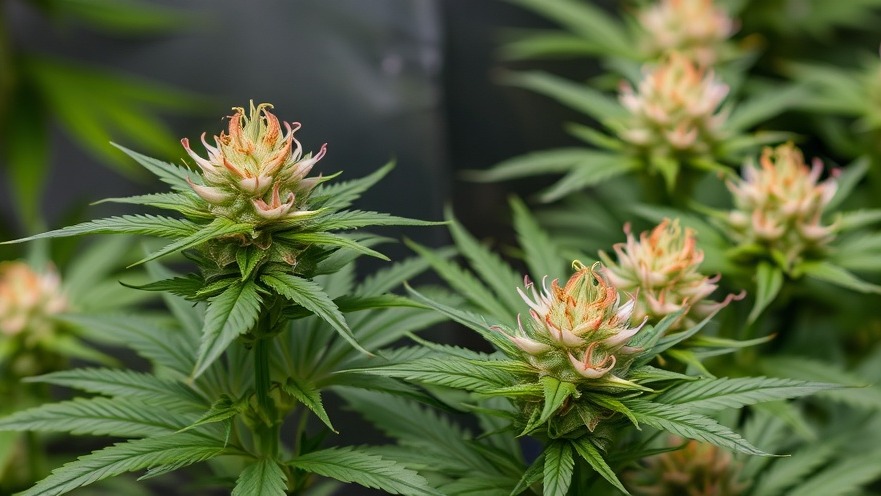
Texas Takes Action: Future of THC Regulation
As the debate around cannabis regulation continues in the U.S., Texas is stepping up its game. Governor Greg Abbott is expected to issue an executive order establishing a minimum age of 21 for purchasing THC products. This decision arrives as tension in the Texas legislature culminated in a special session where House and Senate couldn't reach an agreement on comprehensive legislative measures. With stakeholders eagerly anticipating Abbott’s formal announcement, it's crucial to understand the implications of these changes on the local economy and the Austin business community.
Why The Age Requirement Matters
Setting a minimum age for THC products is a crucial step toward creating a more regulated and safer marketplace. Proponents argue that this move will help curb underage access to cannabis products, ensuring public safety and responsible consumption. On the economic front, however, local businesses focusing on cannabis stand to face both challenges and opportunities as they adapt to the new rules. The 21-year minimum age could alter customer demographics, requiring businesses to shift their marketing strategies.
Opposition and Counterarguments: Is a Ban the Answer?
Despite the anticipated executive order, there are voices in the community expressing concern. Critics of age restrictions argue that such regulations do not necessarily prevent youth consumption and could potentially drive individuals toward the black market for THC products. This further complicates the issue of keeping potentially unsafe products out of circulation. A balanced approach that emphasizes education and responsible adult usage may serve as a more effective alternative to outright bans.
The Bigger Picture: THC and Texas’ Economic Landscape
The decision to regulate THC products reflects a larger trend in states reevaluating cannabis laws. Research indicates that states with regulated cannabis markets have seen significant tax revenue increases, contributing to public programs and services. For Austin entrepreneurs in the cannabis sector, navigating these new rules could present both hurdles and unique opportunities to innovate while fostering a culture of compliance. Leading local industry experts suggest that collaboration within the Austin business community—particularly among business incubators and accelerators—will be vital in adapting to these changing regulations.
Austin’s Thriving Business Scene: Embracing Change
Austin, known for its vibrant entrepreneurial culture, stands at a crossroads. With companies rapidly emerging from Austin’s tech scene, entrepreneurs can capitalize on new market opportunities stemming from the upcoming THC regulations. Networking events, business seminars, and resources offered by Austin’s Chamber of Commerce can help local businesses prepare. By harnessing Austin's innovation hub mentality, fueled by local business grants and venture capital, entrepreneurs are better positioned to thrive amidst the changing landscape.
Future Impacts: What’s Next for Texas?
Looking forward, the challenge for businesses will be adapting to the executive order while continuing to thrive in the marketplace. The potential economic impacts are vast: from increased tax revenues providing much-needed funding for community projects to the challenge of ensuring compliance within a competitive space. Stakeholders should remain alert to developments in the cannabis space, as changes could spur further shifts in local legislation and policies affecting small businesses.
Conclusion: The Importance of Staying Informed
As Texas prepares to increase restrictions around THC products, it’s imperative for businesses and consumers alike to stay informed on the evolving regulations. This executive order is more than just a piece of legislation; it carries the weight of a burgeoning industry poised for growth. Those in the Austin community should engage with local networks, business organizations, and educational resources to navigate these changes effectively. Embracing these regulations could lead to a more responsible and innovative cannabis marketplace in Texas, benefiting both consumers and local businesses.
 Add Element
Add Element  Add Row
Add Row 



Write A Comment